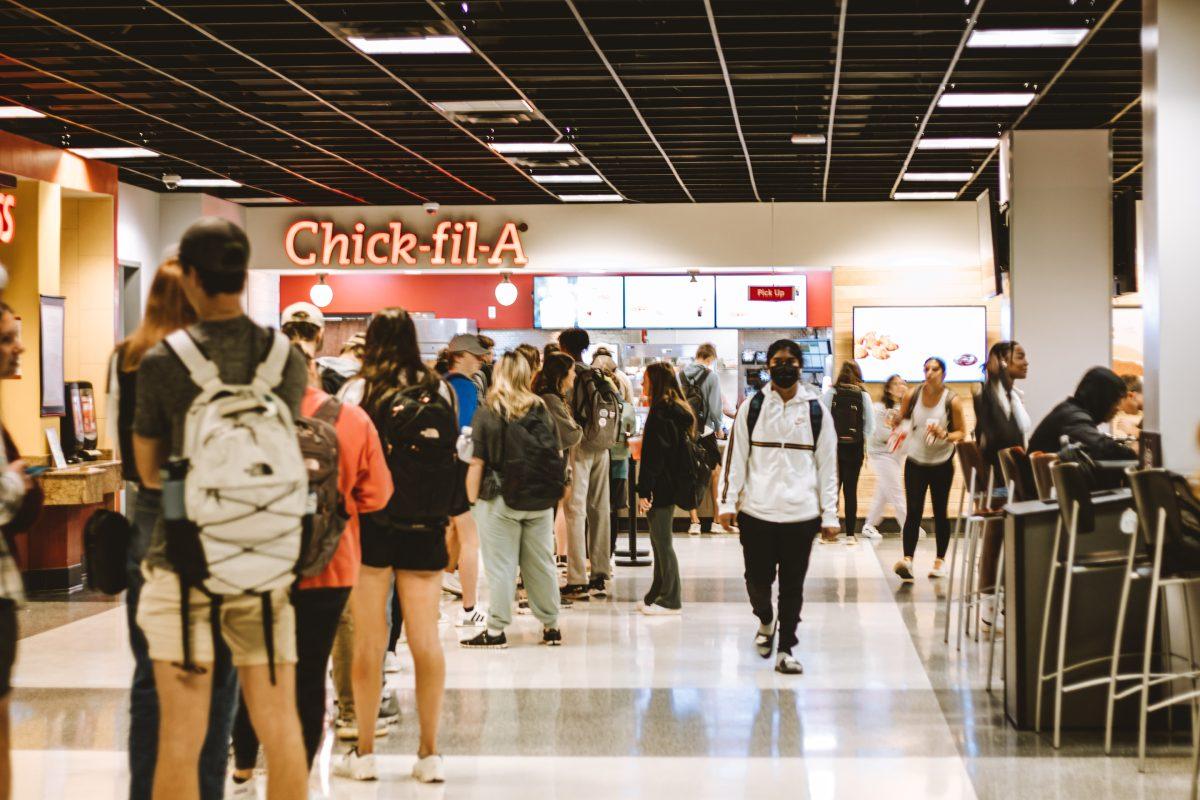According to Mississippi State University, nearly 30% of college students experience food insecurity nationwide.
Sara Mae Brodnax, a senior majoring in political science, said 33% of those enrolled at MSU contribute to this national percentage.
Kai Bali, co-director of Health and Wellness for MSU’s Student Association, shed light on the reasons that students suffer from food insecurity. He said some students simply do not have the finances to afford food.
Bali pointed to the Block by Block donation drives as a source for students in need. This is an initiative that allows students to donate their block meals from their meal plans to other students who may not have the means to afford food.
He explained how MSU will provide students with food and other resources at no cost through Bully’s Pantry and Closet.
Brodnax is the president of the ambassador program that promotes Bully’s Closet and Pantry at MSU. This organization sees the majority of students in need on campus.
The pantry opened its doors in January 2020 — only months before the COVID-19 pandemic occurred.
“We didn’t know it, but we were opening the most needed resource at the time,” Brodnax said.
She added that the number of students requiring assistance during the pandemic were extremely high.
Abby Ezell, secretary of the ambassador program, shed light on the types of students that rely on Bully’s Closet and Pantry for help.
“Most of the students that come into the pantry are international students,” Ezell said.
The food pantry typically offers items such as bread, ramen and canned foods. This makes for a lack of culturally diverse selection, so international students are unable to receive familiar foods to their cultures.
Brodnax expressed understanding for the hardship that international students face when attending college in a foreign country. These students might be unfamiliar with the currency and grocery system in the U.S., she said.
According to Brodnax, the university is currently working to increase the amount of international foods in the pantry.
While Bully’s Closet and Pantry is looking to improve its food selection, Bali claimed that the student government can only do so much regarding access to more affordable food on campus.
“There is only so much that the student government can do because a lot of the food is managed by Aramark,” Bali said.
Aramark provides MSU with food services, but beyond that role, they have no other obligations to the university.
Besides international students, graduate students are disproportionately vulnerable to becoming food insecure.
Ezell said many of the students who come to Bully’s Closet and Pantry are obtaining their graduate degree.
Similarly, Brodnax shared that the majority of those experiencing food insecurity are working students on scholarships.
“Most college students experience food insecurity when their scholarships may only cover so much, and they have to pay for the rest of their tuition,” Brodnax said.
She added that those on a scholarships rely heavily on their financial aid to make ends meet, but they need additional assistance to be able to afford food. Even further, many of the students who experience food insecurity work jobs while also attending school.
“Most of the students that we see come through the pantry are living paycheck to paycheck,” Brodnax said.
Bali said the recent rise of inflation has affected the number of students who are food insecure. He showed the most concern with the block meal equivalency rate, since the amount of food that a block meal covered a year ago has decreased significantly.
“A block meal is very wide, and it does not cover what it used to cover a year ago,” Bali said.
Brodnax added that they have seen a small influx in the numbers of students that require assistance in getting food since the rise of inflation.
“The recent uptake has not hit us as hard as we had prepared for,” Brodnax said.
Ezell attributed the influx to the advertising that the ambassadors have done for Bully’s Pantry.
Brodnax said that the conversation surrounding food insecurity should not be taboo.
“If you are in a room with 10 people, 3 of them are experiencing food insecurity,” Brodnax said.
Number of MSU students affected by food insecurity rises
Jayce Freeman | The Reflector
In the Colvard Student Union, students wait in line to grab food from Chick-fil-A. Students can pay for meals with block meals, flex dollars or a credit or debit card.
0
Donate to The Reflector
Your donation will support the student journalists of Mississippi State University. Your contribution will allow us to purchase equipment and cover our annual website hosting costs.
More to Discover













